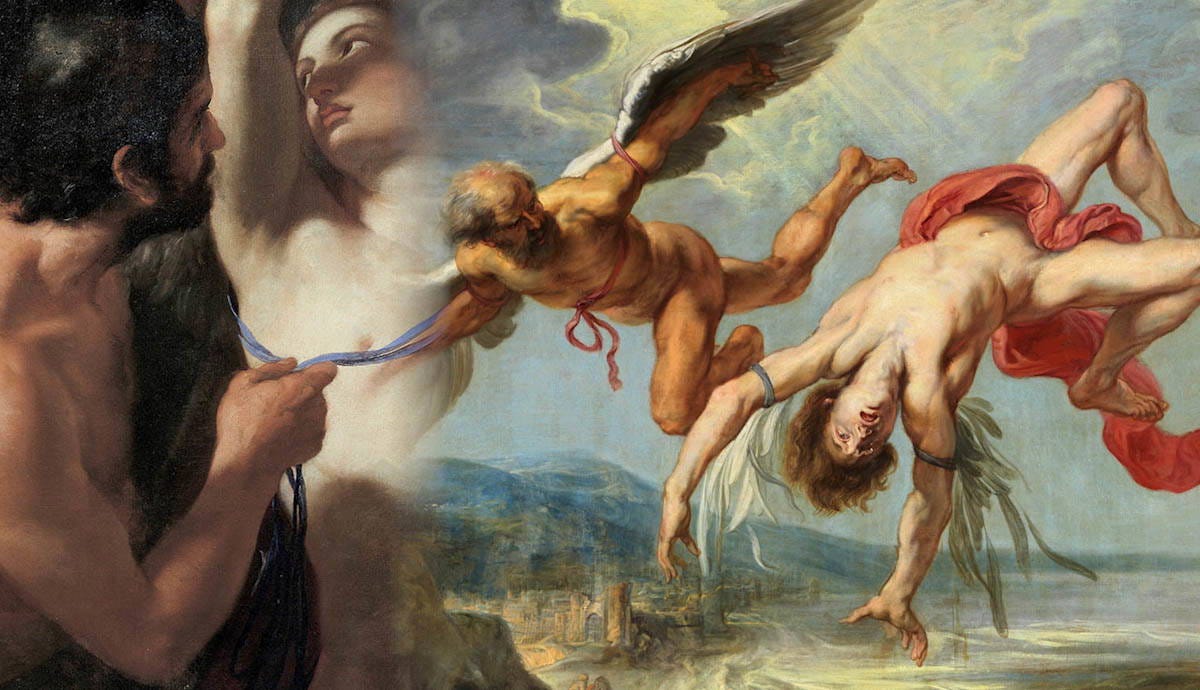Keep Your Ego in Check
How Humility and Self-Control Lead to True Success
Hello, hello!
This post will be a tad longer, because it’s a topic that hits home hard — might talk about this in another post. I wrote it more on an short essay-like format rather a stream-of-consciousness one. Anyhow, I hope you enjoy it!
You might be familiar with the story of Icarus and Daedalus. In this myth, Icarus and his father, Daedalus, were imprisoned on the island of Crete. Daedalus, a skilled inventor, crafted wings made of feathers and wax so they could escape. Before they flew, Daedalus warned Icarus: don’t fly too high, as the sun’s heat would melt the wax, and don’t fly too low, as the sea’s moisture could weigh down the wings.

But Icarus didn’t listen. Guided by overconfidence and intoxicated by the thrill of flight, he ignored his father’s advice. His ego took over, and he soared closer to the sun. As Daedalus predicted, the wax melted, causing Icarus to fall into the sea and perish.
Ego vs. Discipline: A Timeless Struggle
Icarus’ ego got the better of him, preventing him from exercising the discipline to follow his father’s advice—with fatal consequences.
So, how many times have we let our egos take the wheel, leading us away from what’s right or virtuous?
As humans, it’s common to let our egos win over discipline. It’s just easier. Think about the number of times you’ve said, “I’ll start on Monday,” only to cheat yourself out of taking action. I know I’ve been guilty of it. It’s easier to lie to ourselves than admit we’re at fault and take real action.
New Year’s resolutions are a prime example of this. How often do we let them fall apart because our ego won’t allow us to acknowledge that we’ve failed? Rather than push through, we give up entirely.
Seneca on Ego and Discipline
Seneca, one of the great Stoic philosophers, repeatedly stressed the dangers of letting ego overpower self-discipline. To him, the ego was the very thing that derailed people from living a virtuous life.
Seneca’s beliefs still ring true today. Think of the many brilliant minds and personalities that have been led astray by their egos, steering them away from a path to success. Take Lance Armstrong, for example.
The Fall of Lance Armstrong
Lance Armstrong, a professional cyclist, won the Tour de France seven consecutive times from 1999 to 2005—an accomplishment that seemed almost superhuman, especially given his recovery from cancer. I mean, how could you not be impressed?
But his legacy took a sharp turn when it was revealed that his success was fueled by years of doping, a reality he fiercely denied for over a decade. His ego, ambition, and relentless pursuit of victory outweighed the discipline required to compete fairly. In 2012, Armstrong was stripped of his titles and banned from the sport, his reputation got tarnished. What began as an inspiring story of resilience turned into a cautionary tale of how unchecked ego can lead to downfall.
How to Manage Ego
So, how do we manage our egos? In his letters to Lucilius, Seneca often advised against seeking external validation or glory, as these pursuits inflate the ego and distract us from cultivating a disciplined mind. For Seneca, chasing fame, wealth, or recognition was a distraction from true virtue.
Discipline, Self-control and Ego
Self-control is one of the most important qualities related to discipline.
In his works, Seneca talks about moderation and self-control. But how exactly do we attain that self-control?
If you’ve read Ryan Holiday, one of my favorite authors, you might have come across his book "Ego is the Enemy." In it, Holiday discusses how ego often gets in the way of personal discipline and success. He shares relevant stories and strategies to keep ego in check and focus on the bigger picture. Highly recommended!
There’s a chapter in the book titled "Restrain Yourself," which is particularly relevant here. In it, Holiday emphasizes the importance of controlling impulses, emotions, and desires—all of which are driven by ego. He argues that ego clouds judgment and leads to impulsive decisions, often hindering long-term success. His key message: true self-control comes from the ability to manage your ego.
Takeaways
This might seem obvious, maybe even repetitive, but the message is clear: we can be our own worst enemy if we let ego take control.
If we don’t manage our ego, we won't be able to attain self-control, hindering our journey to discipline. In consequence, we will steer away from success at our own hand. The further we let ego take us from that path, the further we’ll be from true success.
I’d love to hear your thoughts—what are your techniques for keeping your ego in check? I’m looking forward to diving deeper into this subject as I continue to learn more.
Hope you enjoyed this reflection! If you found it helpful, don’t forget to subscribe and share.


